NLSIU is organising an online conversation with global policy experts on the theme ‘Can knowing the law make better public policy?’ on February 8, 2026 from 6 to 7 pm.
About the Session
Effective ideas and interventions in public policy attract financial resources, people and the time to organise operations. But the question that confronts them is who, how and why should the government authorize such actions, if we want to scale? Acceptance is easier than authorisation. Having garnered the evidence, is knowing the law an important but often ignored step to transition from theory to practice?
Join this conversation with three experts in the policy field – a public policy educator with a global development policy expert and a corporate and tech policy leader – to unpack this question. This webinar will particularly be useful to law students, professionals and other students looking to transition to public policy practice.
Speakers
Srikrishna Ayyangar, is the Chair of the Master’s in Public Policy Programme at NLSIU, Bengaluru. Trained as a political scientist, he has been a public policy educator for more than a decade in India, having graduated from the Maxwell School at Syracuse University. His interests are in populism and case study methodologies. He is also the co-convenor of the Comparative Case Study Group at the Methods.Net community hosted by the University of Louvain, Belgium.
Ronald co-founded IDinsight and led the first decade of growth for its India office. Today, IDinsight’s 250+ staff across Asia and Africa help governments and nonprofits use data and evidence to make better decisions.
Ronald is currently building Veeraa, a crowdfunding and growth platform for India’s community leaders. He has also served as CEO of Jan Suraaj Foundation (JSF) and under his leadership, JSF built an active network of over 25,000 youth across Bihar. Earlier in his career, Ronald worked with Pratham, India’s largest education nonprofit, coordinating the Annual Status of Education Report (ASER) and co-leading a statewide learning program with the Government of Punjab.
Ronald holds a BA (Honours) in Economics from St. Stephen’s College, Delhi University, and an MPA in International Development (MPA/ID) from Harvard Kennedy School.
 Ms. Shimal Kapoor
Ms. Shimal Kapoor
Shimal Kapoor is a law and public policy professional with nearly a decade of experience working at the intersection of governance, regulation, and technology. Shimal began her career as a LAMP Fellow at the Parliament of India and later served as a Judicial Clerk at the Supreme Court of India, before contributing to governance projects at the World Bank during her Master’s in Public Policy at the Harvard Kennedy School. Since her Master’s, Shimal has worked on public policy engagements for leading technology companies like Meta and Probo, focussing on privacy, content regulation, online safety, online gaming, telecom laws, AI governance, and digital competition.

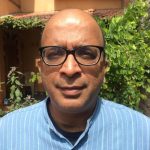

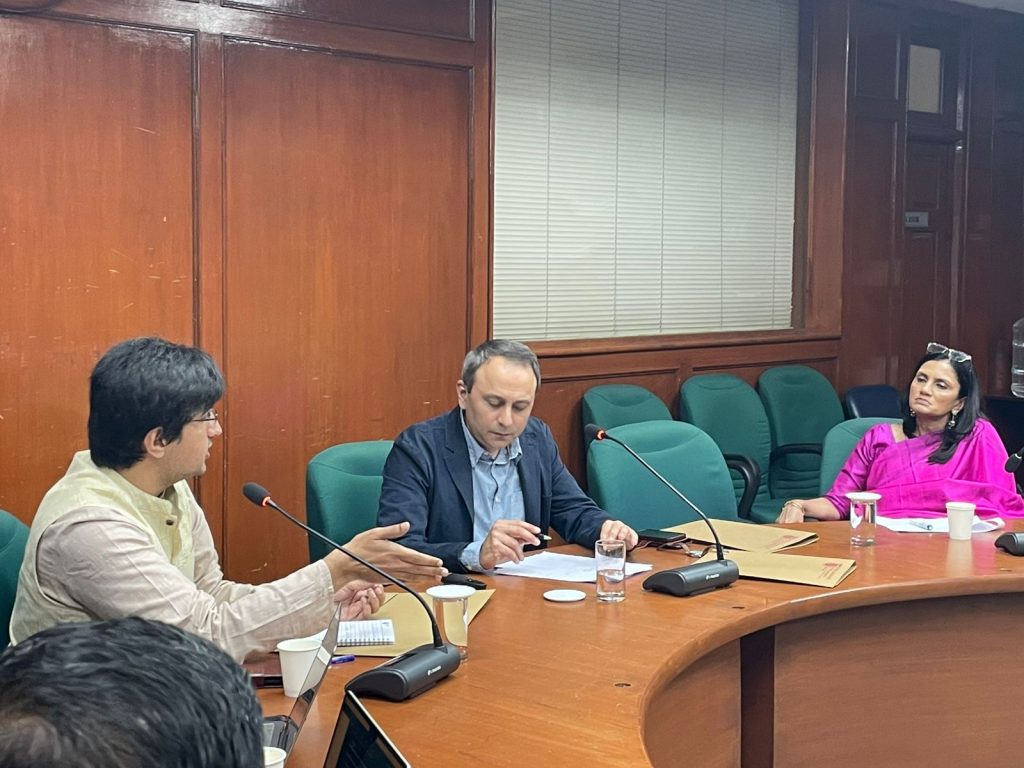 Keynote Address by Dr. Akash Kapur, Visiting Research Scholar and Lecturer, Princeton University
Keynote Address by Dr. Akash Kapur, Visiting Research Scholar and Lecturer, Princeton University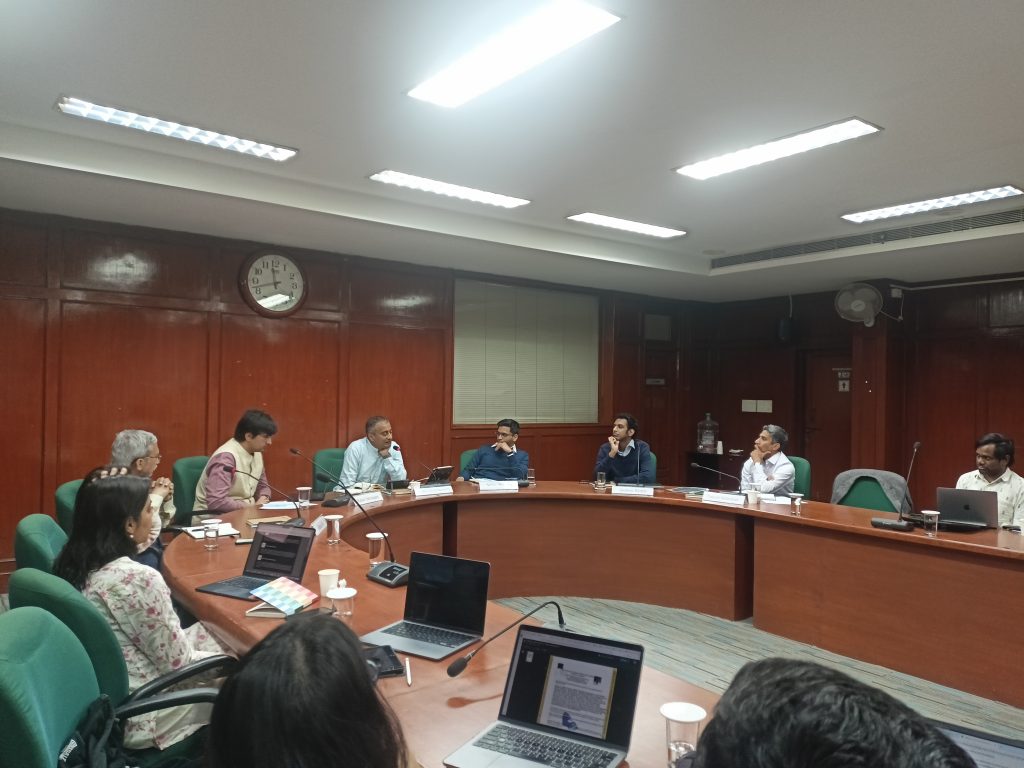 Panel discussion on AI Governance in the Global South
Panel discussion on AI Governance in the Global South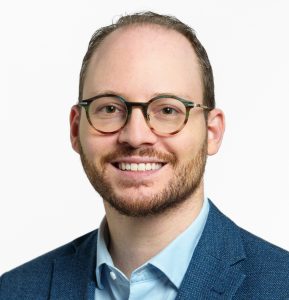
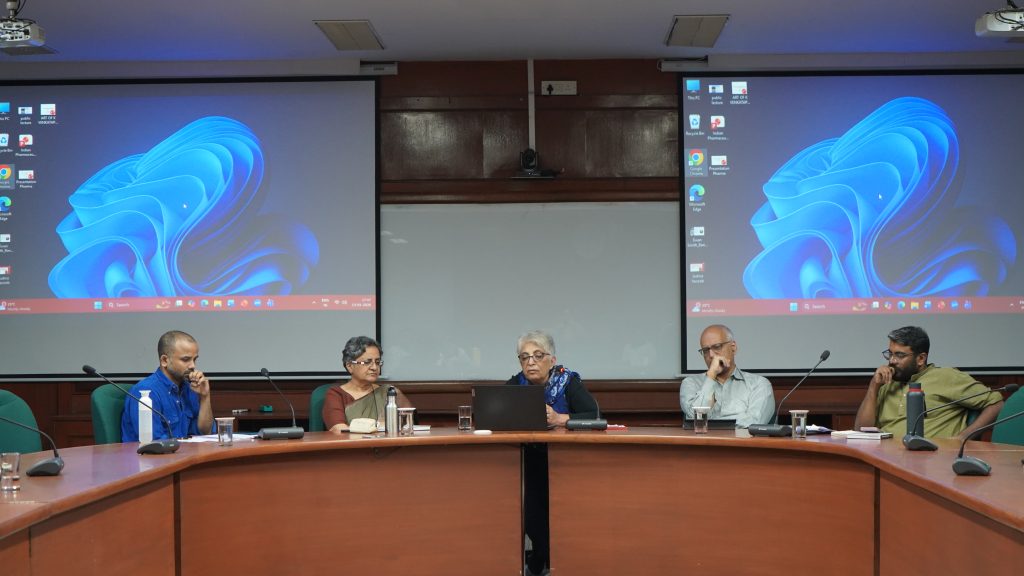 The NLSIU Library Committee organised a panel discussion with Prof. (Dr.) Meera Nanda on January 13, 2026. The discussion focussed on Dr. Nanda’s recent work on the convergences between Hindu nationalism and postcolonial theory.
The NLSIU Library Committee organised a panel discussion with Prof. (Dr.) Meera Nanda on January 13, 2026. The discussion focussed on Dr. Nanda’s recent work on the convergences between Hindu nationalism and postcolonial theory.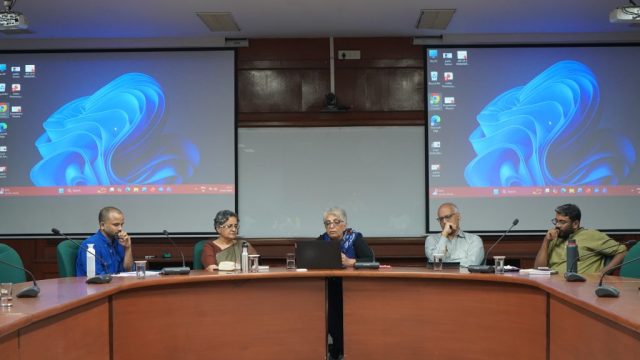
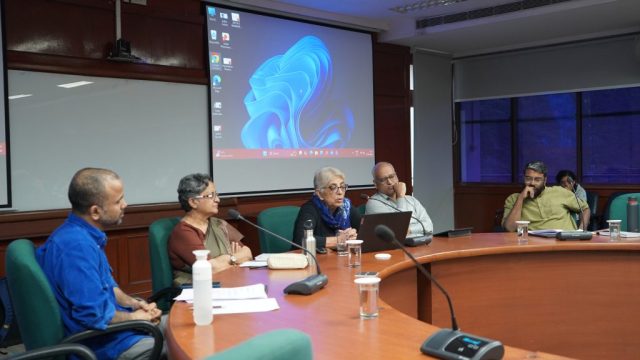
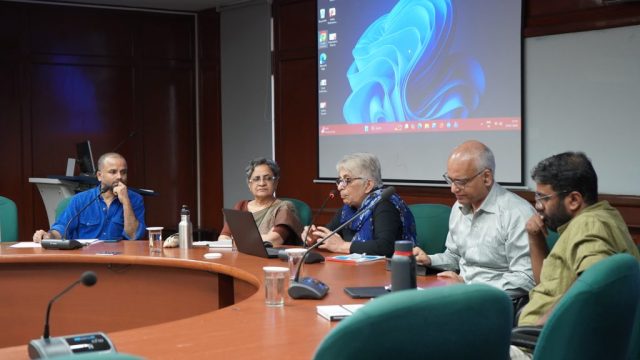
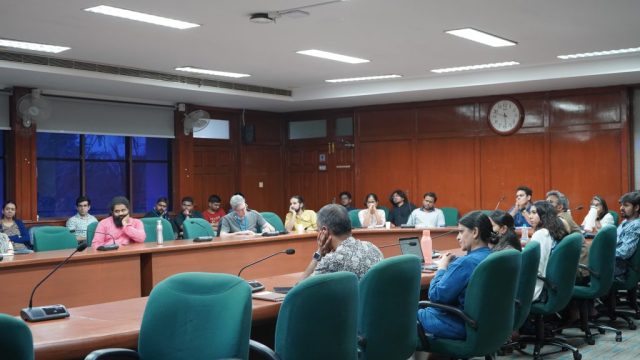
 The Green Room invites you to a play reading of The Coffin is Too Big for the Hole by Kuo Pao Kun (a short one-act play) on January 7, 2026. The session will take place from 5 –7 pm and take the form of a table read followed by a discussion.
The Green Room invites you to a play reading of The Coffin is Too Big for the Hole by Kuo Pao Kun (a short one-act play) on January 7, 2026. The session will take place from 5 –7 pm and take the form of a table read followed by a discussion.